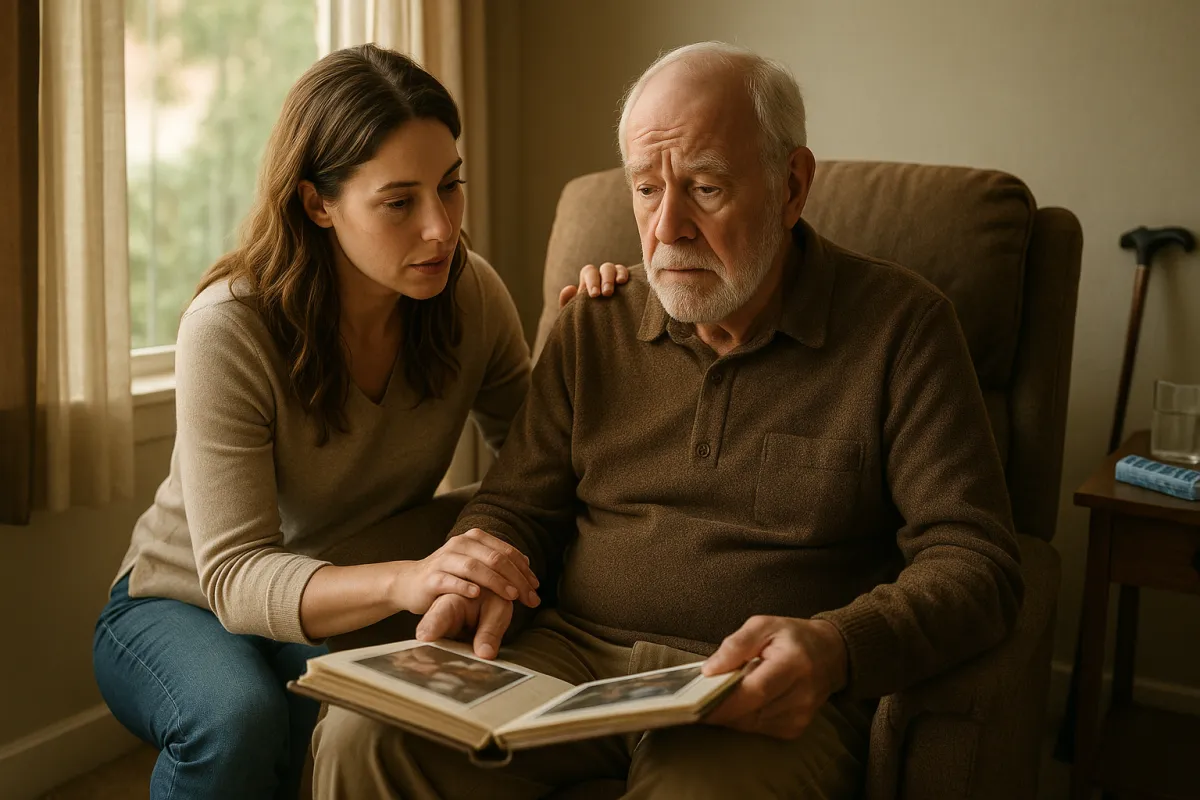
Caring for Aging Parents with Alzheimer’s: What Millennials and the Sandwich Generation Need to Know
If you’re part of the “sandwich generation”—those of us aged roughly 35 to 60 who are juggling caring for aging parents while supporting children—you already know how overwhelming it can be. But recent research paints an even more urgent picture: millennials, many of whom are just entering adulthood, are increasingly stepping into Alzheimer’s caregiving roles, and the challenges they face offer valuable lessons for all caregivers.
Here’s what you need to know, whether you’re caring for a parent with dementia or balancing multiple family responsibilities.
1. Alzheimer’s Caregiving Is a Growing Reality for Younger Generations
One in six millennial caregivers—averaging just 27 years old—are responsible for someone with Alzheimer’s or another form of dementia. Many don’t live with the person they care for, often traveling long distances to help with transportation, grocery shopping, or medical appointments. About 42% of these millennials are sole caregivers, struggling to find affordable outside help.
This means caregiving isn’t just an “older adult” issue anymore. The age range of Alzheimer’s patients is expanding, with diagnoses of early-onset dementia rising dramatically among people in their 30s to 60s[4]. For the sandwich generation, this highlights the increased likelihood that you might be providing care for your parents or even younger relatives under high stress.
2. The Emotional Toll is Real—and Often Overlooked
Nearly 80% of millennial dementia caregivers report significant emotional distress. The burden goes beyond the physical tasks; the frustration and heartbreak of watching a loved one change can be overwhelming. This distress also impacts job performance: about half say caregiving interferes with their work, with one-third experiencing severe impacts, such as reduced hours or even job loss.
If you’re juggling work and caregiving, know you’re not alone—and it’s critical to seek support early, whether through counseling, support groups, or conversations with your employer about flexible options.
3. Caregiving Can Disrupt Careers but Also Offers Unique Strengths
Many caregivers have to cut back hours, take time off, or leave jobs altogether to provide care. This financial and professional strain compounds the stress. However, millennials often bring strengths to these roles: tech skills to manage medical information, a tendency to plan ahead, and a willingness to engage in open conversations about end-of-life care, which can ease some challenges.
For the sandwich generation, embracing technology—such as online medical portals, caregiving apps, or telehealth—can free up time and reduce stress. Planning ahead, including legal and financial matters, also helps manage this demanding role.
4. The Financial Impact is Massive and Growing
Alzheimer’s disease care costs the U.S. an estimated $384 billion in 2025, with family caregivers contributing nearly $415 billion in unpaid care. The lifetime cost of caring for one person with dementia can exceed $400,000, much of which falls on families through out-of-pocket expenses and lost income.
Understanding this financial impact can prompt important conversations about insurance, savings, and accessing community resources early. It’s also a powerful reminder to take care of your own financial health while caring for others.
5. You Are Not Alone—There Are Resources and Growing Awareness
The demand for dementia care specialists and support workers exceeds supply, but awareness is increasing. Many organizations offer helplines, educational resources, and local support groups. Engaging with others who understand the sandwich generation’s unique challenges can provide comfort and practical advice.
Remember, caregiving is a marathon, not a sprint. Seeking help isn’t a sign of weakness—it’s a smart strategy to sustain yourself and provide the best care possible.
Looking Forward: Supporting Yourself as You Support Others
Caring for a parent with Alzheimer’s while raising or supporting children can stretch anyone thin. But the experiences of millennial caregivers show us that this role is evolving with new challenges—and new tools to meet them. By recognizing the emotional, professional, and financial impact, embracing technology, planning ahead, and reaching out for support, you can navigate this journey with resilience.
If you find yourself overwhelmed, take a moment to breathe and remember: every small step you take matters. Connect with others, explore resources, and don’t hesitate to ask for help. You’re doing important work—both for your loved ones and for yourself.
For caregivers in the sandwich generation, the path may be tough, but it’s also filled with opportunities for growth, connection, and deep love. You’re not alone on this journey—and together, we can face the challenges ahead.